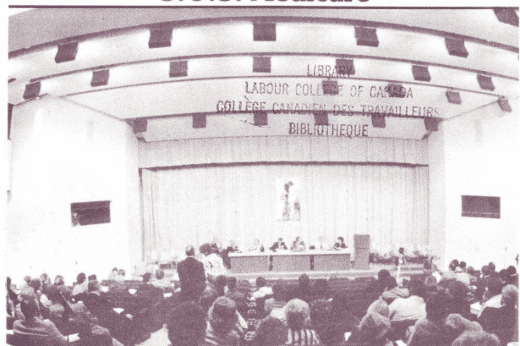Québec’s College of Physicians and government move to stop doctor exodus to the private sector
Québec has a parallel, privately paid health care sector that defies the conventional wisdom about universal health care.
In a surprise move Québec’s College of Physicians is calling for an immediate suspension of more privatization in medical care.
Dr. Mauril Gaudreau of the College of Physicians says newly graduated doctors could be required to serve 5 or 10 years in the public sector.
Dr. Gaudreau told Radio-Canada that a framework is needed to control privatization and that recent studies by The Lancet and the CD Howe Institute show that privatization is not a panacea or the solution it is touted to be.
“The typical example is when you need knee surgery. The orthopaedist meets you here at the Centre Hospitalier de l’Université de Montréal (CHUM) and tells you: ‘I can do this in 14 months. If you come to a private clinic, I can operate on you in a month. It’ll cost you 25,000 bucks,” said Dr. Gaudreault. “That’s solicitation that, in our opinion, is questionable, not to say illegal.”
Broken social contract
Dr. Gaudreault went on to say, “That’s why we’re talking about a social contract that’s broken, a social contract between the medical community and the public in the sense of individual and collective responsibility that’s crumbling.”
At almost the same time the College expressed criticism of privatization, Québec’s Health Minister Christian Dubé announced that he will table a bill forcing family doctors and specialists trained in Québec to work in Québec’s public sector after graduation.
Dubé told Radio-Canada that it costs between $400,000-800,000 in public money to train a physician, therefore they should give back after training, in a formula similar to that of the Canadian Armed Forces.
There are 22,500 doctors in Québec. More than 700 have completely opted out of the public system. The numbers of opted out doctors in the rest of Canada are extremely low-in the range of about 14 physicians.
Why is this coming up now?
The pro public sector position of the College of Physicians coincides with negotiations between the two unions representing doctors and the Québec government. It is also timed a month before the launch on December 1 of Quebec’s newest health care bureaucracy Santé Québec, to be headed by two private sector managers, Christiane Germain from a family of hotel owners and who runs a boutique hotel chain, will chair the board of directors and Genevieve Biron, who runs her father’s business empire of private labs and health service outlets will be the Chief Executive Officer.
The new government-owned entity Santé Québec will be the sole employer and manager of all health employees, and will coordinate day-to-day health care operations, while the Ministry of Health will focus on major policy issues.
The Québec government has been strongly criticized for its health care reform, including the creation of Santé Québec, which was passed by invoking closure in the legislature. A vocal critic is Québec’s health coalition, Coalition solidarité santé, and Québec’s public sector unions, that went out on strike last fall. Called the Common Front, the strike was comprised of 420,000 public sector workers, 80 per cent of whom are women.
Québec’s pro public doctors not impressed
Dr. Isabelle LeBlanc of the Medecins Québécois pour le regime public (MQRP), a group of doctors who defend public health care, says the private sector is like a vampire draining the human resources of the public sector.
“We wonder why the burden should be placed solely on young doctors when the government is in the process of extending agreements with CMSs (specialised medical centres for private surgeries). If the Minister wants to halt the exodus of doctors to the private sector, he has to address the conditions that have led to this exodus. As long as we’re using the argument of taxpayers’ money paying for our training, we’re entitled to wonder why that same money is being used to inflate the profit margins of private companies rather than improving our public network.”
Media reports say Québec is the worst in Canada when it comes to access to a general practitioner. Only 73.3 per cent of Quebecers had a general practitioner in 2023, down from 76.6 per cent in 2022, 79.8 per cent in 2021, 81.4 per cent in 2020 and 82 per cent before the COVID-19 pandemic.
According to the Canadian Institute of Health Information (CIHI), 88 per cent of the population outside Québec had a family doctor. There is no data about Québec in the CIHI analysis because Québec does not provide it.
“The government’s announcement would be extremely difficult to carry out, so I really think it’s a trial balloon to see what the reaction will be. At the same time, they are increasing the number of permits for specialized medical centres for private surgeries (SMCs) and the number of surgeries they allow, and doing nothing to improve the conditions of nurses and other workers,” says Dr. LeBlanc.



